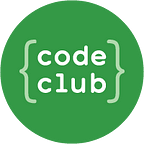Moonhack for Teachers
Teachers, are you using the Moonhack projects for your class? We’ve created this handy guide to indicate age suitability and curriculum matching for kids!
Register your class or school at moonhack.com
The guide below indicates which stages of the Federal Digital Technologies Curriculum that the projects are most well aligned to. Depending on the skill level of the kids in your class, you may find this helpful.
As a rough guideline, the projects are suitable for the following ages:
Scratch Jr — 6 and under
Scratch — 7–12
Python — 10 and above
Micro:Bit — any age (hardware is required, so take a look at the project before starting)
Design Thinking — any age! — this one is designed for pairs or families to do together
Curriculum Matched Extension Activities
Teachers — if you’re looking for extension activities that are curriculum aligned, we’ve got some ideas! You’ll also find opportunities for extension in the blog posts for each project, as well as in the project page of our website. An indication of curriculum suitability is also on our website.
Scratch Jr — Grades 3–4:
1. Convert the project to Scratch (ACTDIP010). Consider the different functionality that Scratch Jr and Scratch provide (ACTDIK008), and what motivated these choices in the designs of the software (ACTDIP012).
Drone planting — Grades 7–8, 9–10:
1. Consider what would be required to build a real drone planting system (ACTDIP027, ACTDIP038). Technical, economic and environmental constraints should be considered. (Grades 9–10: Interviews should be conducted with relevant stakeholders, e.g. landcare groups). These include whether the drone should be remote controlled or pre-programmed, the costs of building and scaling this solution, locations suitable for seeding using drones and which seeds to select to maximise survivability and native biodiversity (Sustainability Cross-Curriculum Priority).
2. Activity 1 should be considered a pre-requisite. If the school has drones available, build a prototype tree planting drone (this will cross over into the Design and Technologies curriculum) (ACTDIP028, ACTDIP039). Critically evaluate the outcome of the created prototype and consider how it would need to be improved to be a viable product (ACTDIP031, ACTDIP042).
Space Junk — Grades 7–8:
1. Convert the project to Python (or other text-based language) using a graphics module like turtle or pygame (ACTDIP028, ACTDIP030). For creating a project with Python and turtle, use the 2019 Moonhack project as a guide.
Python — Grades 9–10:
1. Convert the game into an object-oriented program. Create an “event” class and convert the current events tuples into objects of that class (ACTDIP041).
2. Modify the program to accommodate multiple players simultaneously. An object-oriented approach should be used (ACTDIP041). Consider adding inter-player mechanics such as the ability to share water, steal water, and defend from having water stolen (ACTDIP037).
3. Activity 1 should be considered a pre-requisite. Extend the project to include more than just water. Consider what other resources would be needed to survive on Mars, how the existing events would impact those resources, and what new events could also occur. Consider how to extend the existing classes created in extension activity 1 to implement these newly added resources (ACTDIP041).
Micro:bit soil watering — Grades 7–8:
1. This activity is only recommended for students with some prior Python experience. Convert the project to MicroPython (online editor available at python.microbit.org) (ACTDIP030). Students will need to read the relevant section of the MicroPython documentation to be able to complete this activity.
2. Consider how the soil moisture sensor works, and construct a soil moisture sensor from scratch for use with the micro:bit (ACTDIP027).Examples of how to complete this project are available on the Micro:Bit site here. — https://makecode.microbit.org/projects/soil-moisture
Moonhack takes place between May 25–31 in 2020 and it’s open to everyone! Register your class or school to participate at moonhack.com
